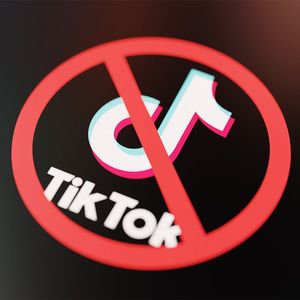CONTACTStaffCAREER OPPORTUNITIESADVERTISE WITH USPRIVACY POLICYPRIVACY PREFERENCESTERMS OF USELEGAL NOTICE
© 2024 Pride Publishing Inc.
All Rights reserved
All Rights reserved
By continuing to use our site, you agree to our Private Policy and Terms of Use.
The 10th annual Gay American Smoke Out, which urges lesbian, gay, bisexual, and transgender people to stop smoking, is set for Thursday, November 18. The American Legacy Foundation says gay people are considerably more likely to smoke than their heterosexual peers, with up to half of all LGBT adults reporting smoking. As many as 59% of gay adolescents smoke, according to the foundation, significantly higher than the 35% of all adolescents who do so. Fewer gay people have attempted to quit smoking, according to the foundation; about 75% of gay smokers have attempted to quit at some point, compared with 80% of all adults who smoke. Smokers are at greater risk of developing heart disease, cancer, stroke, and emphysema. "We want to help all Americans quit smoking, but there is a particular need for outreach within the LGBT community," says Cheryl Healton, president and CEO of the American Legacy Foundation. "We know that more LGBT smokers recognize the increased risks of smoking, but fewer have made attempts to quit, and we need to change that. We know how important a role support plays in the LGBT community, so we ask members of the community to support friends as they go through the difficult process of trying to quit. Research has shown that support can make a big difference in quitting successfully." To show support for a friend during the annual Gay American Smoke Out or to try to quit yourself, the American Legacy Foundation recommends the following "Learn to Quit" smoking tips and guidelines: 1) Make the choice to quit: Becoming an ex-smoker is a powerful act; identify your reasons for quitting and clearly commit to this decision. 2) Create a plan: Smokers should plan to quit at least five days before they actually stop smoking. 3) Build a team: Friends, family members, and coworkers influence behaviors, so make them aware of your attempt to quit and ask for their help and support. Smoking is prevalent in bars and clubs, particularly in the LGBT community, so trying to quit smoking should become a team effort. 4) Make your friends aware of your attempt to quit and consider asking friends to temporarily stop socializing at venues that involve smoking. 5) Use available tools in your community: Utilize smoking cessation clinics or group support meetings in your community, or take advantage of telephone counseling. 6) Smokers looking to quit can call (800) QUIT-NOW, a toll-free number that links smokers to quit-line services in their state or region.
Want more breaking equality news & trending entertainment stories?
Check out our NEW 24/7 streaming service: the Advocate Channel!
Download the Advocate Channel App for your mobile phone and your favorite streaming device!
From our Sponsors
Most Popular
Here Are Our 2024 Election Predictions. Will They Come True?
November 07 2023 1:46 PM
Meet all 37 of the queer women in this season's WNBA
April 17 2024 11:24 AM
17 Celebs Who Are Out & Proud of Their Trans & Nonbinary Kids
November 30 2023 10:41 AM
Here Are the 15 Most LGBTQ-Friendly Cities in the U.S.
November 01 2023 5:09 PM
Which State Is the Queerest? These Are the States With the Most LGBTQ+ People
December 11 2023 10:00 AM
These 27 Senate Hearing Room Gay Sex Jokes Are Truly Exquisite
December 17 2023 3:33 PM
10 Cheeky and Homoerotic Photos From Bob Mizer's Nude Films
November 18 2023 10:05 PM
42 Flaming Hot Photos From 2024's Australian Firefighters Calendar
November 10 2023 6:08 PM
These Are the 5 States With the Smallest Percentage of LGBTQ+ People
December 13 2023 9:15 AM
Here are the 15 gayest travel destinations in the world: report
March 26 2024 9:23 AM
Watch Now: The Daily
Trending stories from our video partner Advocate Channel.
For more videos and shows go to advocatechannel.com.
Trending stories from our video partner Advocate Channel.
For more videos and shows go to advocatechannel.com.
Latest Stories
Over 90% of trans youth live in states pushing anti-trans legislation: report
April 23 2024 10:08 PM
George Santos pulls out of New York congressional race
April 23 2024 7:04 PM
Biden will hammer Trump over abortion bans in Florida speech
April 23 2024 5:00 AM
Tristan Snell, who brought down Trump University, sees conviction in hush money case
April 22 2024 7:36 PM
Joe Biden admin marks Earth Day with major environmental initiatives
April 22 2024 4:18 PM
Texas Gov. Greg Abbott: 'We want to end' trans and gender nonconforming teachers
April 22 2024 4:13 PM
Nonbinary 17-year-old killed two years after being reported missing
April 22 2024 3:46 PM
Trending stories
Most Recent
Recommended Stories for You



















































































